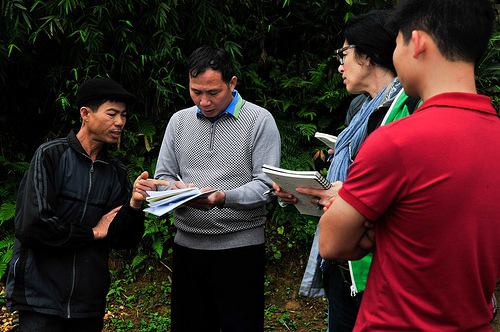Bringing Sustainable Energy To Africa: Schneider Electric's Climate Smart Village Program

Table of Contents
The Impact of Energy Poverty in Africa
The extent of energy poverty in Africa is staggering. Millions lack access to electricity, severely limiting their potential for progress. This lack of access creates a vicious cycle of poverty, impacting numerous aspects of life:
- Lack of Access to Electricity: Over 600 million people in Sub-Saharan Africa lack access to electricity, according to the World Bank. This figure highlights the vast scale of the challenge.
- Limited Economic Opportunities: Without reliable power, businesses struggle to operate, limiting job creation and economic growth. Small businesses, vital for rural economies, are particularly affected. This directly impacts income generation and poverty reduction efforts.
- Health Impacts: The reliance on traditional fuels like wood and charcoal for cooking and lighting leads to respiratory illnesses and other health problems, particularly affecting women and children. Improved access to clean energy significantly improves health outcomes.
- Environmental Consequences: The unsustainable use of traditional fuels contributes to deforestation and air pollution, exacerbating environmental challenges. Switching to renewable energy sources helps mitigate these negative environmental consequences.
Schneider Electric's Climate Smart Village Program: A Detailed Look
Schneider Electric's Climate Smart Village program aims to address energy poverty by providing sustainable energy solutions to rural communities in Africa. The program's objectives include: improving access to electricity, promoting economic development, enhancing education and healthcare, and protecting the environment. This is achieved through the implementation of a range of sustainable energy solutions:
- Solar Power: Photovoltaic (PV) systems are a cornerstone of the program, providing clean and reliable electricity for homes and community facilities.
- Wind Power: In suitable locations, wind turbines supplement solar energy, providing a diversified and resilient energy supply.
- Mini-grids: These localized grids distribute power to multiple households and businesses, offering a more efficient and scalable solution than individual off-grid systems.
- Energy Storage: Battery storage solutions ensure a consistent power supply, even during periods of low solar irradiance or wind.
Specific examples of the program's impact:
- Villages in Kenya have seen significant improvements in access to electricity, enabling improved healthcare and education.
- In Rwanda, the program has facilitated the establishment of small businesses, creating new economic opportunities for the community.
- Partnerships with local governments and NGOs are crucial to the program's success, ensuring community ownership and sustainability.
- Focus on community engagement and training programs ensures long-term success and local capacity building.
Sustainable Energy Solutions Implemented: Microgrids and Beyond
The program leverages the power of microgrids to provide reliable and sustainable energy. These decentralized energy systems offer several advantages in rural areas:
- Enhanced Reliability: Microgrids are less susceptible to disruptions compared to centralized power grids.
- Scalability: They can be easily expanded to accommodate growing energy demands.
- Cost-Effectiveness: In many cases, microgrids prove to be a more affordable solution than extending centralized grids to remote areas.
- Environmental Benefits: The use of renewable energy sources dramatically reduces carbon emissions and environmental impact.
Specific examples of microgrid implementations:
- A 50kW solar-powered microgrid in a remote village in Mali, providing electricity to over 100 households.
- A hybrid microgrid in Tanzania, combining solar and wind energy, offering a reliable power supply year-round.
- Detailed technical specifications of these microgrids, including capacity, technology used, and energy storage solutions, are available on Schneider Electric's website.
Empowering Communities: Education and Economic Opportunities
Beyond providing energy, the Climate Smart Village program focuses on empowering communities and fostering economic development. This involves:
- Training Programs: Local technicians are trained to install, maintain, and repair energy systems, creating jobs and ensuring long-term sustainability.
- Entrepreneurship Opportunities: The increased access to electricity creates opportunities for small businesses to thrive, boosting local economies.
- Improved Access to Services: Reliable electricity improves access to education and healthcare, leading to better overall quality of life.
- Community-Led Initiatives: The program encourages community involvement in planning and management, fostering ownership and sustainability.
The Future of Sustainable Energy in Africa: Scaling Up Success
The Climate Smart Village model offers a replicable and scalable approach to bringing sustainable energy to Africa. Future expansion requires:
- Geographic Expansion: Scaling the program to other regions across Africa, adapting to varying geographical and social contexts.
- Strategic Partnerships: Collaboration with governments, NGOs, and international organizations is essential for securing funding and support.
- Technological Advancements: Investing in research and development of more efficient and cost-effective renewable energy technologies.
- Policy Support: Supportive government policies and regulations are crucial for creating a favorable investment climate for sustainable energy projects.
Conclusion:
Schneider Electric's Climate Smart Village program offers a compelling model for bringing sustainable energy to Africa, addressing energy poverty and fostering economic development. By implementing innovative microgrid technologies and empowering local communities, the program is creating a brighter future for rural populations. Its focus on renewable energy sources and community engagement showcases a path towards a more sustainable and prosperous Africa. Learn more about how you can support initiatives promoting sustainable energy in Africa and explore the impact of programs like Schneider Electric's Climate Smart Village program. Invest in the future of sustainable energy in Africa!

Featured Posts
-
 Lich Thi Dau 10 Tran Hap Dan Nhat Giai Bong Da Thanh Nien Sinh Vien Quoc Te 2025
Apr 30, 2025
Lich Thi Dau 10 Tran Hap Dan Nhat Giai Bong Da Thanh Nien Sinh Vien Quoc Te 2025
Apr 30, 2025 -
 Becciu Deve Risarcire 40 000 Euro La Sentenza Del Tribunale
Apr 30, 2025
Becciu Deve Risarcire 40 000 Euro La Sentenza Del Tribunale
Apr 30, 2025 -
 Beijings Strategy Reducing Reliance On Us Pharmaceutical Imports
Apr 30, 2025
Beijings Strategy Reducing Reliance On Us Pharmaceutical Imports
Apr 30, 2025 -
 4 Kwietnia Dzien Zwierzat Bezdomnych Zrozumiec Problem I Dzialac
Apr 30, 2025
4 Kwietnia Dzien Zwierzat Bezdomnych Zrozumiec Problem I Dzialac
Apr 30, 2025 -
 Boxeo En Saltillo Un Motor De Transformacion Social A Traves Del Deporte
Apr 30, 2025
Boxeo En Saltillo Un Motor De Transformacion Social A Traves Del Deporte
Apr 30, 2025
